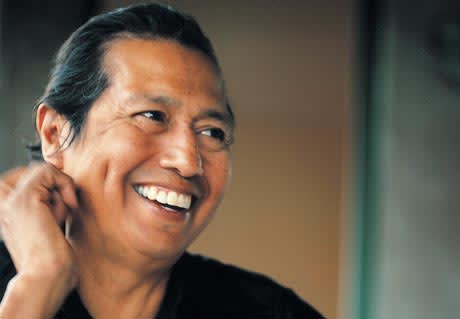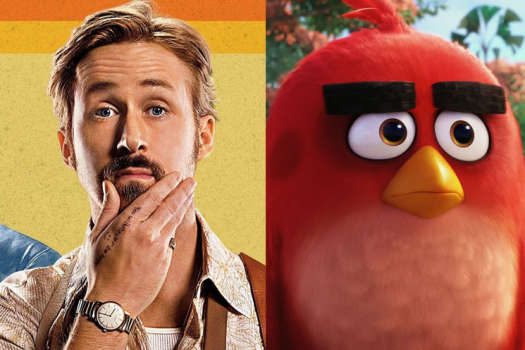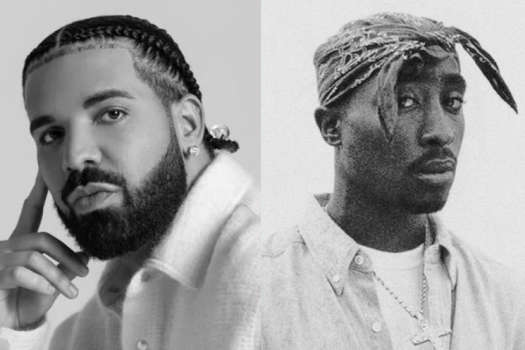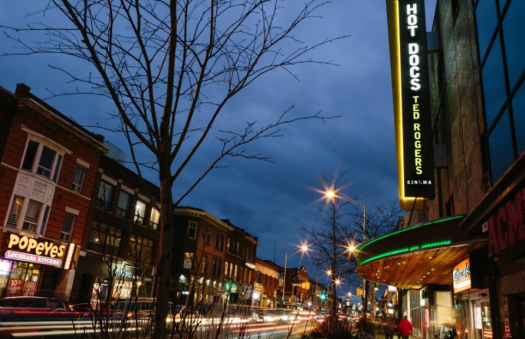Three years ago, Alejandro Escovedo was virtually down for the count. A long-time bright light and genuine pioneer of the so-called Americana scene, the Austin-based singer/songwriter/bandleader was felled by a vicious combination of hepatitis C, cirrhosis of the liver, and internal bleeding.
Thankfully, the knock on heavens door wasnt answered, and after a tough battle, hes back in fighting form, physically and creatively. His new album, The Boxing Mirror, is being hailed as his very best yet, and Escovedo calls it "probably my most special record. Just the sheer act of making one is perhaps as important as the record itself. For a while there I never thought Id play or make a record again, but then to have one I really love is an added bonus.
Producing and playing on the album is the legendary John Cale, a key influence. An adventurous integration of strings into the context of an oft-fiery rocknroll band has been a signature of Escovedos solo career, and Cales own groundbreaking work in the Velvet Underground and beyond served as inspiration. Alejandro admits to "just a moment of concern over the planned collaboration. "John did have this reputation as a very intense figure, but the project was the exact opposite of that. He was definitely in control, the captain of the ship, but never overbearingly so. He was just very compassionate and caring.
The compassion and respect of his musical peers was vividly demonstrated on Por Vida, the star-studded 2004 tribute album designed to help defray Escovedos post-collapse medical and living expenses. The likes of Cale, Ian Hunter, Cowboy Junkies, the Mekons, Calexico, Jayhawks, Steve Earle and Lucinda Williams all covered his songs, but Escovedo reacted with typical modesty. "It was so humbling. It was almost like I was learning how I should have written them in the first place! It just made me feel good, that I have a purpose, and I had forgotten that through the medicine and the illness. This awakened me to the beauty of playing the songs and going out and rockin again.
Media coverage of The Boxing Mirror has been dominated by the back-story of Escovedos near-death. A similar situation occurred when his early 90s solo albums, Gravity and 13 Years, emerged out of personal tragedy, which elicited frustration. Though remaining a critics favourite (No Depression magazine termed him Artist of the 90s), he aims a well-placed jab at the music press. "Rock journalism is almost like sensationalism now. Go for the story and it is not so much about the music anymore. You rarely read a record review in which people do a Richard Melzer or Lester Bangs-like complete immersion in the songs and the music.
Escovedo acknowledges that "everyone assumes the [new] songs are about nearly dying. In a way, they are, but it is not just about that. It is also about addressing the support I got through that. Its almost like a little home movie or love letter to everyone who helped me through that period, especially my wife [poet Kim Christoff].
A fascinating musical journey has taken Escovedo from Bay Area punks the Nuns and cowpunk pioneers Rank and File through Austin roots rockers the True Believers, scorching hard rockers Buick MacKane, and a long line of solo albums. He has forged his own path while logging, in his words, "more miles than money. Future plans call for a record based around his Quintet (cellos, violin, acoustic guitars), while "part of me still wants to make a full-on electric rock album. Hector [Munoz, his drummer] and I were going to call ourselves the Brown Stripes and do White Stripes songs in Spanish. We may just try to write some garage-y songs in that mould.
Thankfully, the knock on heavens door wasnt answered, and after a tough battle, hes back in fighting form, physically and creatively. His new album, The Boxing Mirror, is being hailed as his very best yet, and Escovedo calls it "probably my most special record. Just the sheer act of making one is perhaps as important as the record itself. For a while there I never thought Id play or make a record again, but then to have one I really love is an added bonus.
Producing and playing on the album is the legendary John Cale, a key influence. An adventurous integration of strings into the context of an oft-fiery rocknroll band has been a signature of Escovedos solo career, and Cales own groundbreaking work in the Velvet Underground and beyond served as inspiration. Alejandro admits to "just a moment of concern over the planned collaboration. "John did have this reputation as a very intense figure, but the project was the exact opposite of that. He was definitely in control, the captain of the ship, but never overbearingly so. He was just very compassionate and caring.
The compassion and respect of his musical peers was vividly demonstrated on Por Vida, the star-studded 2004 tribute album designed to help defray Escovedos post-collapse medical and living expenses. The likes of Cale, Ian Hunter, Cowboy Junkies, the Mekons, Calexico, Jayhawks, Steve Earle and Lucinda Williams all covered his songs, but Escovedo reacted with typical modesty. "It was so humbling. It was almost like I was learning how I should have written them in the first place! It just made me feel good, that I have a purpose, and I had forgotten that through the medicine and the illness. This awakened me to the beauty of playing the songs and going out and rockin again.
Media coverage of The Boxing Mirror has been dominated by the back-story of Escovedos near-death. A similar situation occurred when his early 90s solo albums, Gravity and 13 Years, emerged out of personal tragedy, which elicited frustration. Though remaining a critics favourite (No Depression magazine termed him Artist of the 90s), he aims a well-placed jab at the music press. "Rock journalism is almost like sensationalism now. Go for the story and it is not so much about the music anymore. You rarely read a record review in which people do a Richard Melzer or Lester Bangs-like complete immersion in the songs and the music.
Escovedo acknowledges that "everyone assumes the [new] songs are about nearly dying. In a way, they are, but it is not just about that. It is also about addressing the support I got through that. Its almost like a little home movie or love letter to everyone who helped me through that period, especially my wife [poet Kim Christoff].
A fascinating musical journey has taken Escovedo from Bay Area punks the Nuns and cowpunk pioneers Rank and File through Austin roots rockers the True Believers, scorching hard rockers Buick MacKane, and a long line of solo albums. He has forged his own path while logging, in his words, "more miles than money. Future plans call for a record based around his Quintet (cellos, violin, acoustic guitars), while "part of me still wants to make a full-on electric rock album. Hector [Munoz, his drummer] and I were going to call ourselves the Brown Stripes and do White Stripes songs in Spanish. We may just try to write some garage-y songs in that mould.




